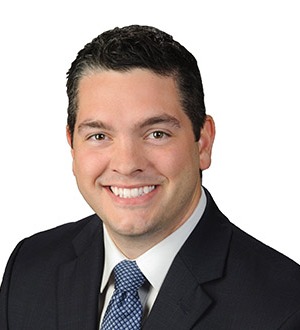Non-Compete News: Georgia Court Interprets Non-Compete Statute's "Sale-of-a-Business" Provision
Georgia’s Restrictive Covenants Act (O.C.G.A. § 13-8-50 et seq.) (“RCA”) governs Georgia non-compete agreements entered into after May 2011. Very few courts have interpreted the RCA since its inception.[1] In Bearoff v. Craton, decided a few months ago, the Georgia Court of Appeals authored its very first decision in the “sale of business” context (i.e., a seller of a business agreeing to a non-compete for some period after the sale). Specifically, the Bearoff court confirmed that, in such circumstances, a non-compete may be enforced for the longer of five years or the time period during which the buyer pays the seller for the business.
The crux of Bearoff v. Craton involves a business dispute. The plaintiff (Janet Bearoff) sued Thomas Craton for violating a non-compete connected to Bearoff’s sale of her (and her husband’s) equity positions in Shannon Video – an adult-entertainment business with which Bearoff and Craton were involved. In exchange for selling their equity, the Bearoffs received $505,000. $450,000 of the sale sum was subject to a promissory note and payable in equal installments during an 81-month period. Because the $450,000 note would be paid from revenues generated by Shannon Video, Bearoff and Craton signed a non-compete that expressly prohibited competition with Shannon Video during the 81-month payment period.
Subsequent to executing the agreement, Shannon Video filed Chapter 11 bankruptcy, which was then converted into Chapter 7 liquidation. As a result of the bankruptcy, Craton did not pay the Bearoffs approximately $250,000 of the agreed-upon sale sum.
Bearoff later learned that Craton planned to open another adult-entertainment business similar to Shannon video. In response, Bearoff wrote Craton a cease-and-desist letter in which she notified him that opening the new business would violate the terms of the non-compete. Notwithstanding the warning, Craton opened his new business – “The Love Library” – which provided goods and services previously provided by Shannon Video.
Accordingly, Bearoff sued Craton. In her lawsuit, Bearoff requested enforcement of the non-compete and sought an equitable extension of its duration. Although the 81-month period had expired by the time of judgment, Bearoff argued the covenant should be extended until Craton paid off the remainder of the $450,000 note as the parties’ intent was to prohibit competition until the note was paid in full. While the trial court confirmed the non-compete’s enforceability, it denied Bearoff’s equitable extension request. Bearoff appealed the ruling.
The Court of Appeals affirmed the trial court. Central to the court’s analysis was O.C.G.A. § 13-8-57(d), a provision of the RCA providing that when a non-compete involves the owner or seller of a business, “a court shall presume to be reasonable in time any restraint the longer of five years . . . or equal to the period of time during which payments are being made to the owner or seller as a result of any sale [of that business].” Based on the statutory language, the court affirmed the enforceability of an 81-month non-compete in the sale-of-a-business context. However, the court also affirmed denial of Bearoff’s equitable extension request.
Considering common law principles of contract formation and prior non-compete case law, the court determined that Georgia law prohibits the equitable extension of a non-compete that is clear and unambiguous as to duration. Reaching its conclusion, the court explained “Courts do not make contracts for the parties.” It went on to reason that contingencies affecting a non-compete’s duration (like one party’s default on a promissory note) should be expressly contemplated and addressed by the parties in their own contracts. Because the non-compete between Bearoff and Craton was silent about circumstances warranting an extension of the non-compete’s duration, the court was unwilling to modify the unambiguous durational term set forth in the agreement.
Bottom Line
Bearoff v. Craton confirms the breadth of the time restriction allowed in the “sale of business” context (for example, in the employer-employee context, any non-compete greater than two years is presumed to be unenforceable). It also signifies that equitable tolling of a non-compete’s duration in such circumstances is disfavored in Georgia. In light of this decision, practitioners should carefully draft restrictive covenants agreements and prudently discuss them with their clients; especially those clients entering into non-compete provisions associated with the sale of a business. Likewise, business buyers expecting sellers to refrain from competition should carefully consider potential contingencies that may arise after the consummation of a sale.
Jeff Mokotoff is the Co-Chair of FordHarrison’s Non-Compete, Trade Secrets and Business Litigation practice group. David Anderson is a member of the Non-Compete, Trade Secrets and Business Litigation practice group. If you have any questions regarding this decision or other issues impacting the enforceability of employment-related restrictive covenants, please feel free to contact Jeff at jmokotoff@fordharrison.com or David at danderson@fordharrison.com. You may also contact any member of the practice group or the FordHarrison attorney with whom you usually work.
[1] To see our previous legal alerts discussing the few published court decisions interpreting the RCA, click here, here here, and here.





















